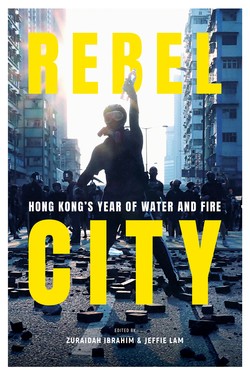Читать книгу Rebel City - South China Morning Post Team - Страница 35
На сайте Литреса книга снята с продажи.
Blame game
ОглавлениеLooking back, Tam said that in mobilizing opposition to the extradition bill, the pan-democrats succeeded in exploiting the distrust that a substantial proportion of Hongkongers have toward the mainland. As for the pro-establishment camp, he said: “We also underestimated the level of Hong Kong people’s distrust in mainland China. When the pan-democrats’ efforts were producing results in May, we thought it was natural for pan-democrats to oppose everything the government proposed.”
Tam said that in hindsight, after the first massive march on June 9 in which organizers estimated that 1 million people took part, the pro-establishment camp could have urged the government to apply the brakes on the bill. But after months of supporting the draft law, the camp had to think hard over how it would look if it switched now to opposing it. “Our supporters may have had reservations if we backtracked. We had to take into account their views,” he said.
The FTU’s Ng said: “There was no point in our asking the government to halt the legislative process in May or June as we didn’t say as much in February.” Even after the June 9 march, the FTU felt that, being a government ally, it could not stop Lam from pressing on with a bill aimed at sending criminal suspects to face justice elsewhere. “The government was worried that if it made any concessions, it would be interpreted as giving in to criminals,” Ng said. “If we asked the government not to go ahead with the bill, would we be condoning criminals and fugitives?”
So even as the numbers turning up at demonstrations rose, the pro-establishment camp still hoped to get the bill passed as quickly as possible. “We believed that all fears about the extradition bill would prove unfounded once it was passed,” Tam said, adding that the government thought so too. For both, that optimism was based on their experience the year before, when the strong opposition faced by the high-speed rail for allowing mainland immigration facilities to be on the Hong Kong side petered out when the network opened.
Almost a year later, Ip remained adamant that there was nothing wrong with the government wanting to push ahead with the extradition bill. What went wrong was that there was insufficient time for public consultation on the proposed legislation, and the government’s handling of the controversy as it played out. “The government lost the publicity war, as the opposition succeeded in instilling fear in the public by using powerful slogans,” she said. The pro-establishment camp also did not expect that Hong Kong would be dragged into the US-China trade war, Ip said, referring to American politicians making statements about the city and President Donald Trump mentioning Hong Kong a number of times during talks with China. “Hong Kong was used by the US as a pawn in the trade war,” she said.
Ip, an ambitious former security minister who resigned in 2003 after 500,000 people marched in protest against a proposed national security law, insisted that it was ultimately the government and not the pro-establishment camp that was to blame for the extradition bill disaster. “The government has to bear the brunt. The chief executive has a 180,000-strong civil service but we are only a small party,” she said.
